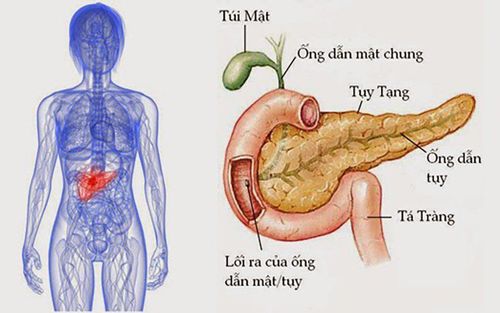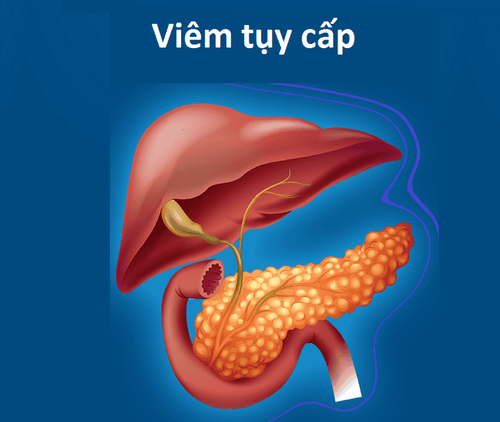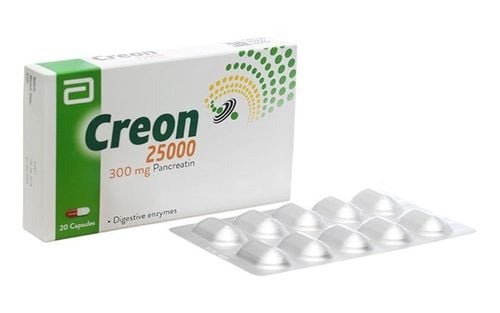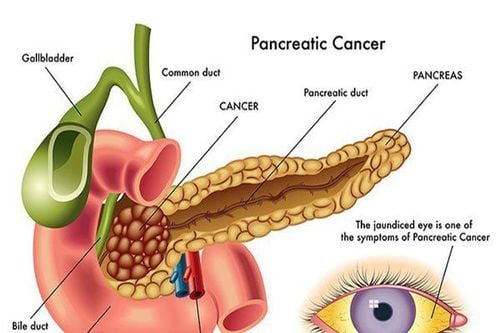This is an automatically translated article.
The article is professionally consulted by Master, Doctor Do Thi Hoang Ha - Doctor of Biochemistry - Laboratory Department - Vinmec Hai Phong International General Hospital.Chronic pancreatitis is a pathological process with long-term continuum, the pancreas is damaged leading to destruction of the pancreatic parenchyma or pancreatic duct and replaced by fibrous tissue leading to impaired pancreatic function. The diagnosis of chronic pancreatitis helps to treat and prevent dangerous complications affecting the patient's health.
1. Who often gets chronic pancreatitis?
Chronic pancreatitis is a rare and non-infectious disease. It affects both men and women, but men are more likely to get the disease than women.
Disease is common in heavy drinkers leading to alcohol poisoning, especially in developed countries and is associated with malnutrition in developing countries. Some other causes can lead to chronic pancreatitis such as: biliary obstruction due to stones or tumors, genetic disorders (metabolic disorders α1-antitrypsin deficiency), hypercalcemia or hyperlipidemia, chronic autoimmune pancreatitis .
Most of the patients have epigastric pain in many degrees and in short duration, even in some cases without pain, so it is easy to misdiagnose with stomach disease. Pain increases when eating and spreads to the back, the pancreas gradually loses the function of secreting enzymes to digest food.
In addition, the patient has nausea, vomiting, weight loss, diarrhea, and fatty stools due to lack of pancreatic enzymes. Weight loss occurred even in patients with no change in appetite or eating habits.
2. Methods of diagnosis of chronic pancreatitis
The diagnosis of chronic pancreatitis helps to treat and prevent dangerous complications to the patient's health. The diagnostic methods of chronic pancreatitis currently used include:2.1. Clinical diagnosis Epigastric abdominal pain radiating to the back is a common symptom. Pain of various degrees; pain often increases and increases when eating, so partly makes patients afraid not to eat much, making the condition worse. Common digestive disorders: loose stools with scum, large amount. Malnutrition: Skinny, rapid weight loss, late stage may appear limb edema, membrane effusion due to malabsorption syndrome. Diabetes mellitus (when the pancreas is more than 85% fibrosis) Signs of invasion pressing on the duodenum and adjacent organs lead to the following symptoms: vomiting and nausea, portal hypertension syndrome, obstructive jaundice . Abdominal examination: a palpable tumor on the navel may be due to the appearance of pancreatic pseudocysts, enlarged pancreas.

2.2. Laboratory tests Exploring exocrine pancreatic function is disordered, in some cases, endocrine dysfunction is also present. Biochemical tests evaluate the exocrine function of the pancreas. + Secretin_Cholecystokinin test
+ Cholesteryl_(C13) Octanoate breath test
+ Faecal Elastase test, Faecal Chymotrypsin ....
Blood test to assess nutritional status; Serum protein is often reduced, especially serum albumin. Tests to investigate the detection of bleeding enzymes due to inflammatory pancreatic tissue, as well as to consider its ability to still produce enzymes, if the pancreas is highly fibrotic, amylase and lipase are not increased. Blood calcium tests are often decreased, there is dyslipidemia (cholesterol and triglycerides are often elevated), as well as effects on blood sugar (blood glucose and HbA1c are increased, often with type I diabetes). Stool test: assesses the level of mucus in the stool. 2.3. Diagnostic imaging X-ray, ultrasound or computed tomography, MRI to provide a means of assessing the condition of pancreatic structures, pancreatic ducts and surrounding tissues to diagnose chronic pancreatitis.
Vinmec International General Hospital is a reputable facility that patients can trust to find and treat pancreatic diseases. Vinmec with full equipment of modern technology, advanced examination and diagnosis techniques, always updated with the latest advances in medicine, especially the high level of expertise and experience of doctors will help diagnose chronic pancreatitis accurately, thereby giving specific treatment advice for each case to achieve the highest efficiency.
Please dial HOTLINE for more information or register for an appointment HERE. Download MyVinmec app to make appointments faster and to manage your bookings easily.














